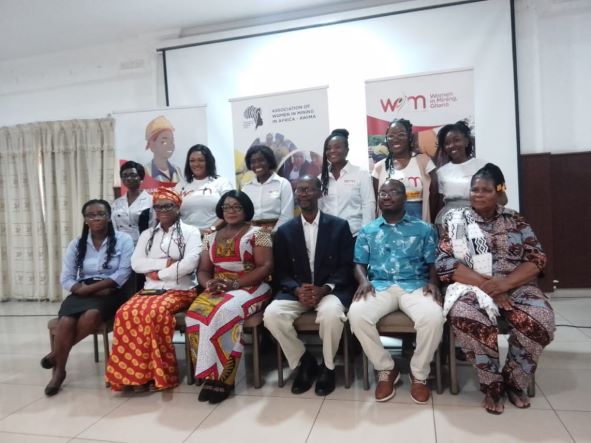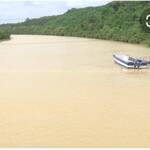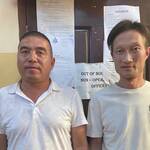Research conducted by Women in Mining Ghana (WIM), an advocacy group for women in the extractive industry, has revealed that almost 50% of women in the industry say they have been denied promotions and capacity building opportunities because they reported their male superiors for sexually harassing them as well as discriminating against them at the workplace.
According to the study, some of these women did not get access to trainings, promotions and opportunities at work while some lost their jobs as a form of retaliation for reporting their male superiors who harass and discriminate against them.
While the study showed that mining companies have policies against gender discrimination, these policies are poorly enforced.
Also, companies are reported to have channels for reporting issues of sexual harassment however, victims refuse to report these cases due to retaliation, victimization, fear and lack of trust.
Project Consultant for Women in Mining Ghana, Dr. Kenneth Bansah during the presentation of the Gender Mapping Study noted that discrimination and harassment is a bigger problem in Ghana and African unlike in other jurisdictions.
“The only difference is that in some jurisdiction, when you report issues of discrimination and harassment, some of them are handed to law enforcement agencies to deal with them. Over here, it appears that retaliation is a big thing. Even if you report, you get retaliated and nothing happens and you suffer the consequences. And so, you are in double jeopardy and the crime is for working in the mining industry,” Dr. Bansah said.
The mining sector plays a critical role in the socio-economic development of Ghana contributing GH₵4.172 billion in domestic tax revenue to the country in 2020.
Despite the huge contributions of the sector to the economy, women participation remains low. They are excluded from governance and decision making, face disproportionate harms from mineral extraction and are less likely to access economic benefit and opportunities.
The study titled ‘Diversity and Inclusion: A Gender Mapping Project in Ghana’s Mining Sector’ was conducted in 100 mining communities in Eastern and Western Regions of Ghana.
Out of a total of 632 participants who were recruited to be part of the study, 544 of them were women from the ages of 18 years to 80 years.
Out of the 544 women who participated in this study, 45.4% reported that they have faced discrimination and harassment.
Some findings from the research shows that from the industry perspective, there was lack of effect leadership and mentorship as women representation in leadership was low, some experienced women were not supportive and some men refused to mentor women.
Participants from the mining communities’ perspective also revealed that there is low educational levels, poor community leadership and unequal distribution of mining benefits between men and women.
The study therefore recommended that mentorship and capacity building should be organised for women. A gender sensitive environment should be created, Key institutions like the Ghana Chamber of Mines should take leading roles in gender inclusion, and financial institutions should create access to funds for women in the mining sector.
Delivering his remarks on the study, Advisor to the Minister of Lands and Natural Resources, Benjamin Aryee urged Women in Mining Ghana to sensitise government to address the imbalances in the mining sector.
He added that “It is not just a matter of empowering them but ensuring that it is an equity situation. What women are better able to do, we should encourage them to do. When they cannot do it, men have to do it.”
President of Women in Mining Ghana, Dr. Georgette Barnes Sakyi-Addo said WIM embarked on this study to provide scientific data for policy and advocacy for women in the mining value chain.
“Inputs of the study will be used to develop a gender framework, organize trainings and education for communities, members of WIM and the female work force. We wanted to come from an informed position because a lot of information and data out there is anecdotal so with this we have some scientific information we can use to design programmes for advocacy,” she said.
The research ulitised a mixed method approach to gather data and draw conclusions and recommendations for the mining industry in the country. The Eastern and Western Regions were selected for the study because they have a large scale mining, support service companies, community women and Artisanal Scale Mining(ASM) who were needed to participate in the study.
- Friday, April 4, 2025 Newspaper Headlines - 4 April 2025
- Blewett: MTN CEO, a pilot, author, chartered accountant, marathon runner and many more - 3 April 2025
- MTN Ghana launches Y’ello Ladies Network - 3 April 2025




